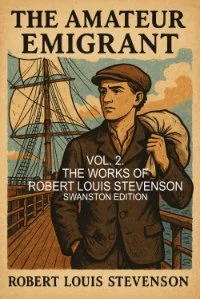By Robert Louis Stevenson. Edited by Sidney Colvin and Colin Heston
“The Letters of Robert Louis Stevenson, Parts VII–X”, collected in Volume XXIV of the Swanston Edition of Stevenson’s works, continues the extensive and illuminating correspondence begun in Volume XXIII. Edited with scholarly care and personal insight by Sidney Colvin—Stevenson’s close friend, literary executor, and biographer—this volume brings readers deeper into the final and most prolific years of Stevenson’s life, offering a vivid and intimate portrait of the author as both a public figure and a private man.
These later letters, written primarily during Stevenson’s residence in the South Pacific, particularly in Samoa, reflect a period of creative intensity, political engagement, and personal reflection. They reveal Stevenson not only as a master of prose but also as a keen observer of colonial politics, a devoted family man, and a figure of growing international literary stature. His correspondence from this time is rich with commentary on his ongoing literary projects—including The Ebb-Tide, St. Ives, and Weir of Hermiston—as well as his thoughts on morality, justice, and the responsibilities of the writer.
The letters are addressed to a wide range of recipients: family members, literary peers, publishers, and political figures. They are filled with Stevenson’s characteristic wit, warmth, and eloquence, but also with moments of vulnerability and philosophical depth. His reflections on illness, exile, and mortality are especially poignant, as he continued to write and correspond despite the increasing toll of his chronic health conditions.
Sidney Colvin’s editorial work is essential to the value of this collection. His introductions to each section, along with detailed footnotes and contextual commentary, provide readers with the necessary background to fully appreciate the historical and personal significance of the letters. Colvin’s close relationship with Stevenson lends the edition a unique authority and emotional resonance, as he was not only a literary scholar but also a trusted confidant of the author.
“The Letters of Robert Louis Stevenson, Parts VII–X” is more than a supplement to his published fiction—it is a living document of a writer’s mind and spirit, capturing the voice of Stevenson in all its complexity: humorous, passionate, reflective, and profoundly human.
The Swanston Edition presents these letters with scholarly rigor and literary sensitivity, making them an indispensable resource for students, researchers, and admirers of Stevenson’s work. Together with Volume XXIII, this volume completes one of the most comprehensive and engaging collections of literary correspondence from the Victorian era.
Read-Me.Org Inc. New York-Philadelphia-Australia. 2025. p.279p.





















